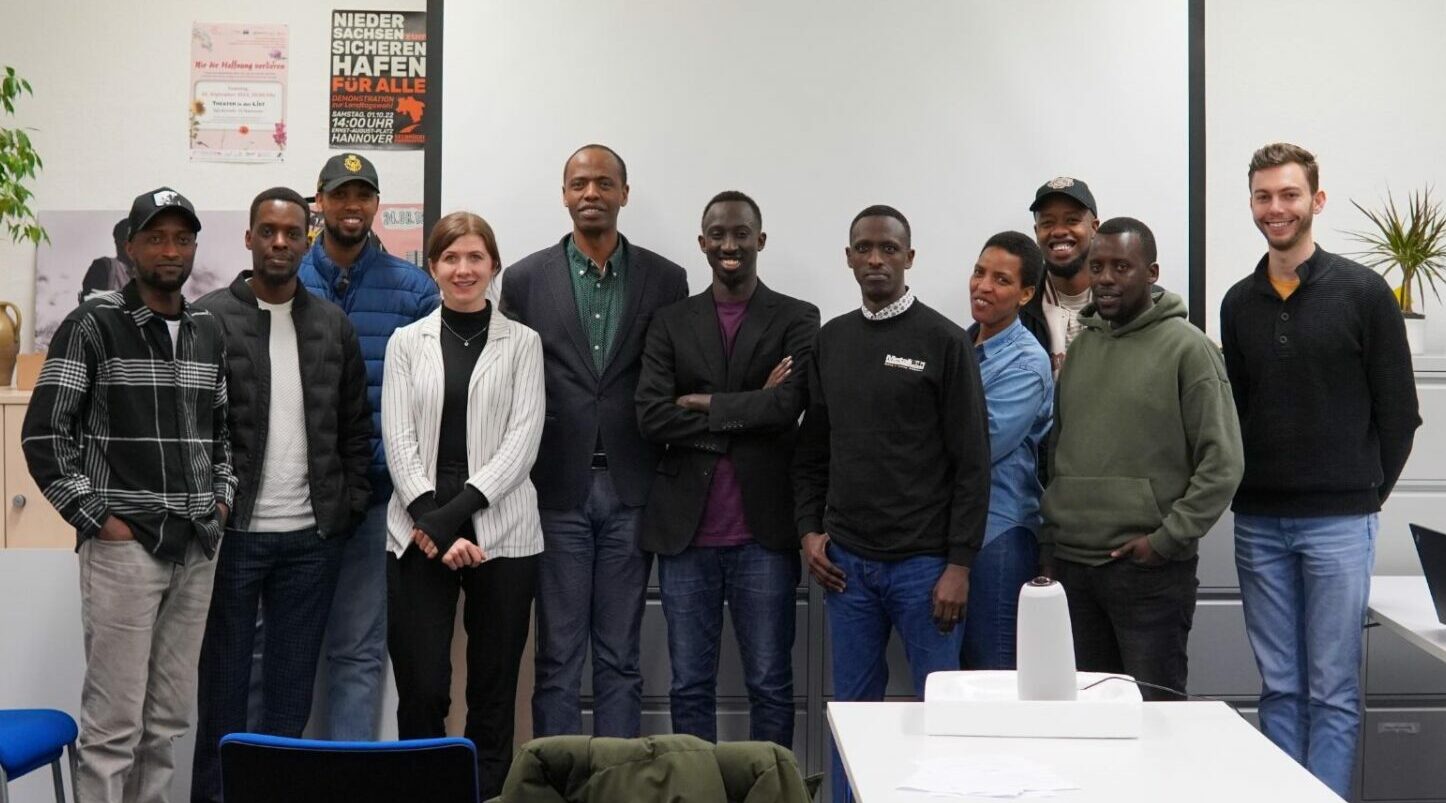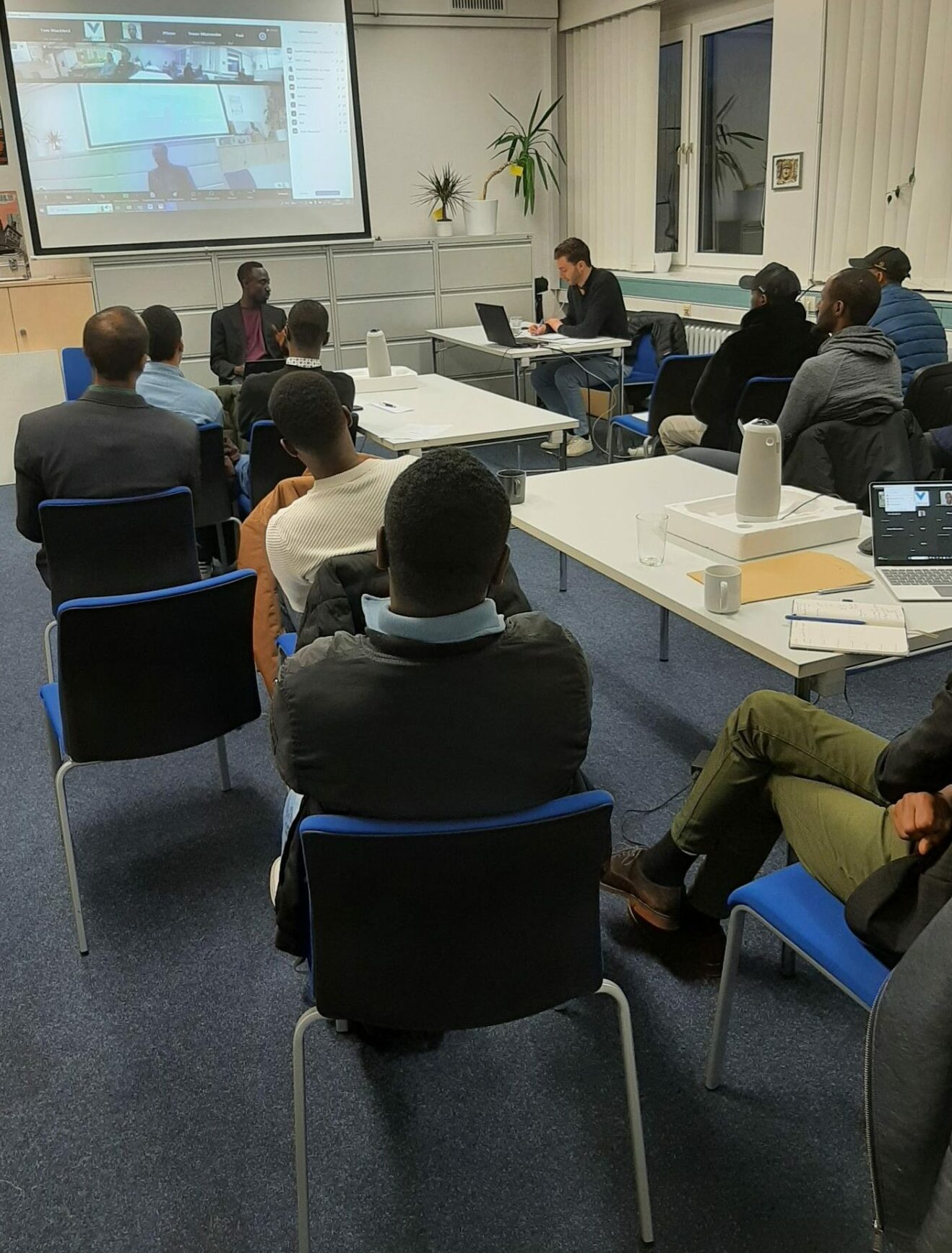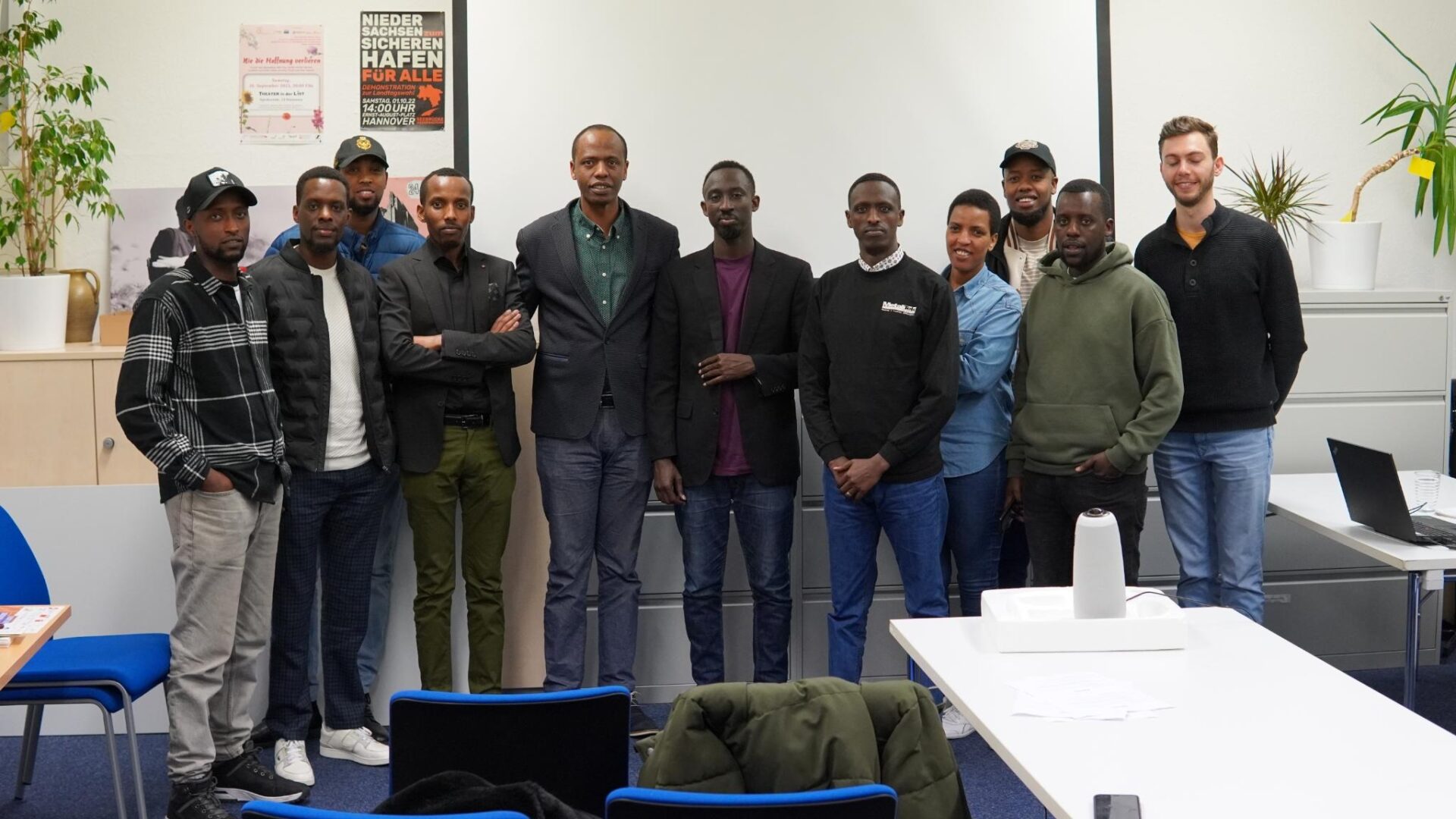
[English below]
Kennen Sie die Gemeinschaft der Banyamulenge aus dem Osten der Demokratischen Republik Kongo (DR Kongo)?
Diese wird in der Provinz Süd-Kivu Ziel von Angriffen durch die kongolesischen Sicherheitskräfte und lokale Milizen. Nach 1996, 1998 und 2004 wurden sie 2017 erneut von lokalen Milizen, den „Mai Mai“, in Koalition mit der Miliz „Red Tabara“ angegriffen, was Tausende von zivilen Opfern und die Zerstörung hunderter Dörfer zur Folge hatte. Banyamulenge werden historisch den Tutsi der Großen Seenregion in Afrika zugerechnet. Sie sprechen eine Sprache, die Kirundi (Burundi) und Kinyarwanda (Ruanda) nahekommt. Daher werden sie in Hassreden in der DR Kongo häufig als Ausländer:innen dargestellt und verfolgt: Sie werden diskriminiert und de facto von den Behörden in der DR Kongo oft nicht als Staatsangehörige anerkannt. Aufgrund zunehmender Übergriffe befinden sich viele Mitglieder der Gemeinschaft auf der Flucht.
Gakondo e.V., ein Verein, dem ein Großteil der in Deutschland lebenden Mitglieder der Banyamulenge angehört, die Gesellschaft für bedrohte Völker e.V. (GfbV) und der Flüchtlingsrat Niedersachsen haben in einem hybriden Workshop am 23.02.2024 über die besonders vulnerable Lage informiert und Lösungsansätze für humanitäre Hilfe und Schutz mit international anerkannten Expert*innen diskutiert. Wir haben uns sehr gefreut, dass wir aus dem Vorstand des Gakondo e.V. Felix Rubogora und Mugabe Saruhembe begrüßen konnten. Zudem ein besonderer Dank an Christoph Hahn, Referent für Genozid-Prävention und Schutzverantwortung bei der GfbV.
Wichtige wissenschaftliche Beiträge zur Debatte kamen von Dr. Helen Hintjens (Universität Rotterdam) zur Thematik der Anti-Banyamulenge Hassrede und des Risikos eines Genozids, von Thomas Shacklock (Genocide Watch) zur Notlage der Banyamulenge in der DR Kongo, sowie von Dr. Délphin R. Ntanyoma (Universität Rotterdam) zur Lage der Banyamulenge in der Region der Großen Seen.
Präsentationen:
Dabei wurde die steigende Zahl ethnisch-motivierter Angriffe deutlich, denen die Banyamulenge in ihrem Herkunftsland ausgesetzt sind. Die Situation in der DR Kongo verschärfte sich nach den Wahlen im Dezember 2023 weiter. Trotzdem erhalten die Banyamulenge nicht ausreichend Schutz in der DR Kongo durch die internationale Gemeinschaft und sind auch in den Nachbarstaaten, besonders in Rwanda und Burundi, Angriffen ausgesetzt.
- Dazu berichtet aktuell die Gesellschaft für bedrohte Völker.
- Auch Gakondo e.V. hat weiterführende aktuelle Informationen hier zusammengetragen. Hier eine Zusammenfassung der aktuellen Entwicklungen.
Birori Honorable stellte die schwierige Situation der Banyamulenge Diaspora in Deutschland dar. Die meisten Angehörigen der Banyamulenge community in Deutschland leben in Niedersachsen, insgesamt ca. 300 Personen. Gakondo e.V. repräsentiert diese als Selbstorganisation mit ca. 200 Mitgliedern. Hier wird ihr Verfolgungsschicksal durch das für das Asylverfahren zuständige Amt oft nicht anerkannt. Grund dafür ist die Unwissenheit über die besonders vulnerable Situation der Banyamulenge in Behörden, unter Politiker*innen und in der Bevölkerung. Zudem bestehen aufgrund der herrschenden Diskriminierung oft Probleme bei der Beschaffung von Dokumenten aus dem Herkunftsland. Der Flüchtlingsrat Niedersachsen begleitet einige Verfahren von Mitgliedern der Gemeinschaft, um eine Schutzzuerkennung zu erreichen.
Wir fordern alle Politiker*innen auf Bunds- und Landesebene auf, sich für eine Anerkennung der Schutzbedürftigkeit der Mitglieder der Banyamulenge Gemeinschaft einzusetzen!
Den Gakondo e.V. erreichen Sie hier: gakondo.de@gmail.com
Für Rückfragen an den Flüchtlingsrat Niedersachsen wenden Sie sich bitte an Caroline Mohrs: cm@nds-fluerat.org


Persecution of the Banyamulenge in the Democratic Republic of Congo
Do you know the Banyamulenge community from eastern DR Congo?
In the province of South Kivu they have long been the target of attacks by Congolese security forces and local militias. After 1996, 1998 and 2004, they were attacked again in 2017 by local militias „Mai Mai“, in coalition with the militia „Red Tabara“, resulting in thousands of civilian casualties and the destruction of hundreds of villages. Banyamulenge are historically classified as the Tutsi of the Great Lakes region in Africa. They speak a language close to Kirundi (Burundi) and Kinyarwanda (Rwanda). For this reason, they are often portrayed as foreigners and persecuted in hate speech in the DRC: they are discriminated against and often not recognized as nationals by the authorities in the DRC. Due to increasing attacks, many members of the community are displaced.
Gakondo e.V., an association to which the majority of Banyamulenge members living in Germany belong, the Society for Threatened Peoples (GfbV) and the Lower Saxony Refugee Council held a hybrid workshop on 23.02.2024 to provide information about the particularly vulnerable situation and discuss possible solutions for humanitarian aid and protection with internationally recognized experts. We were delighted to welcome Felix Rubogora and Mugabe Saruhembe from the Gakondo e.V. board. Special thanks also go to Christoph Hahn, expert on genocide prevention and the responsibility to protect at the GfbV.
Important scientific contributions to the debate came from Dr. Helen Hintjens (University of Rotterdam) on the topic of anti-Banyamulenge hate speech and the risk of genocide, from Thomas Shacklock (Genocide Watch) on the plight of the Banyamulenge in the DR Congo, and from Dr. Délphin R. Ntanyoma (University of Rotterdam) on the situation of the Banyamulenge in the Great Lakes region.
Presentations:
The increasing number of ethnically motivated attacks to which the Banyamulenge are exposed in their country of origin became clear. The situation in the DR Congo will continue to worsen after the elections in December 2023. Nevertheless, the Banyamulenge do not receive sufficient protection from the international community in the DR Congo and are also exposed to attacks in neighboring countries, especially in Rwanda and Burundi.
Birori Honorable also presented the difficult situation of the Banyamulenge diaspora in Germany. Most members of the Banyamulenge community in Germany live in Lower Saxony, around 300 people in total. Gakondo e.V. represents them as a self-organization with around 200 members. Their persecution is often not recognized by the authority responsible for the asylum procedure. The reason for this is ignorance of the particularly vulnerable situation of the Banyamulenge among authorities, politicians and the general public. In addition, due to the prevailing discrimination, there are often problems in obtaining documents from the country of origin for Banyamulenge. The Refugee Council of Lower Saxony accompanies some procedures of members of the community in order to achieve a protection status.
We call on all politicians at federal and state level to advocate for the recognition of the need for protection of members of the Banyamulenge community!
You can reach Gakondo e.V. here: gakondo.de@gmail.com
In case of follow-up questions to the Refugee Council of Lower Saxony, please contact Caroline Mohrs: cm@nds-fluerat.org

Wenn Sie individuell Beratung und Unterstützung brauchen, wenden Sie sich bitte an ...